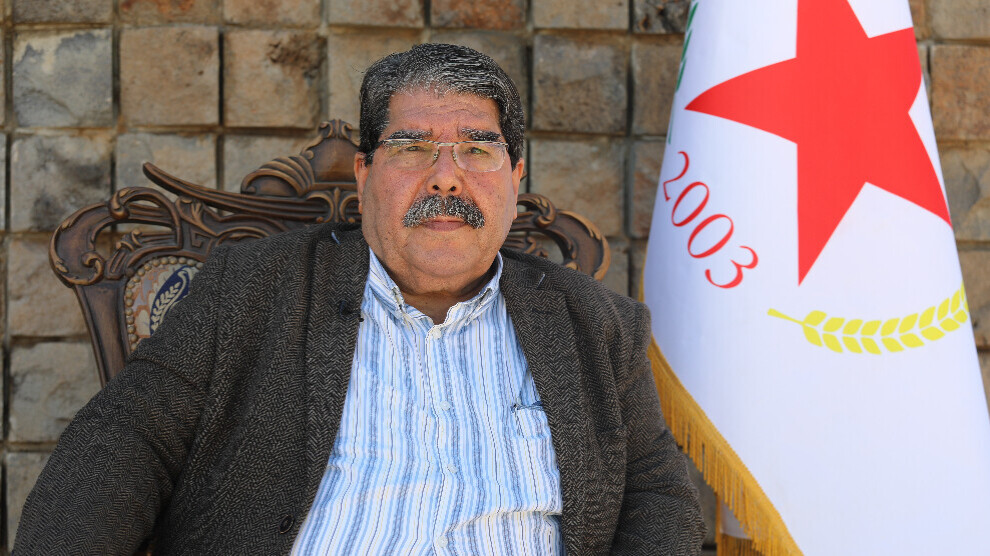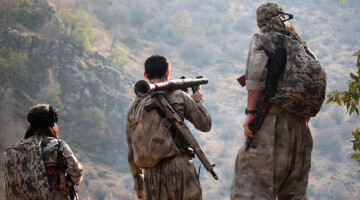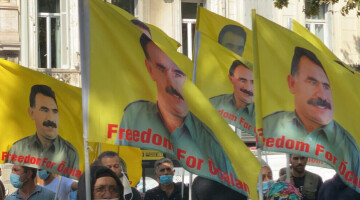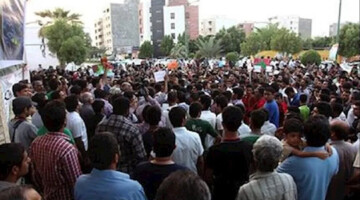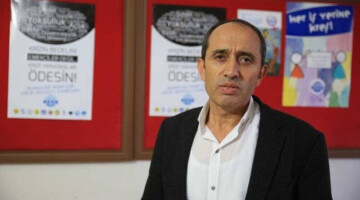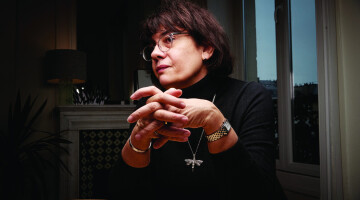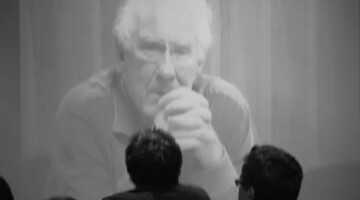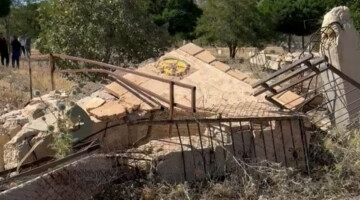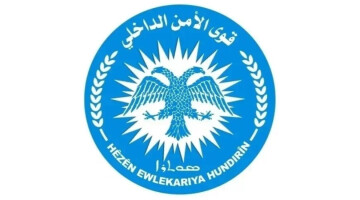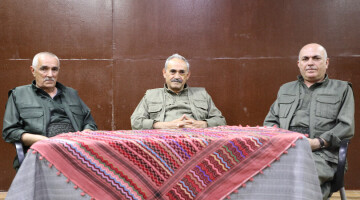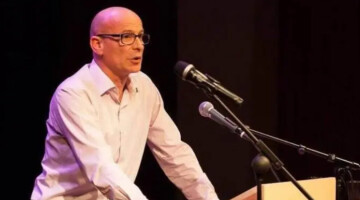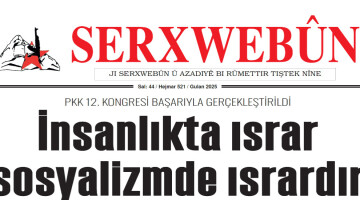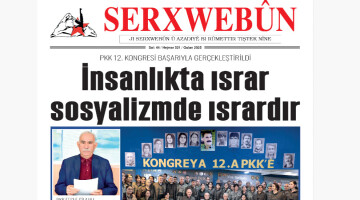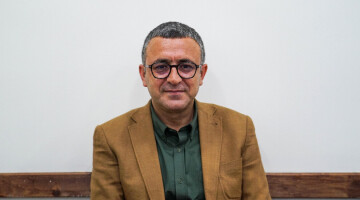The co-chairman of the Democratic Unity Party (PYD), Salih Muslim, spoke to ANF on the current issues, including the visit of the US Chief of Staff, General Mark Milley, to the autonomous region of northern and eastern Syria last week. Milley's visit to a US base last Saturday caused an uproar in Turkey, and according to media reports, the US ambassador was summoned by the Turkish Foreign Ministry.
The Turkish state has continued its attacks even after the earthquakes. How are the Kurds supposed to understand this?
The strategic policy of the Turkish state is to end the existence of the Kurdish people. Under whatever circumstances, they do not stop attacking the Kurdish people. They even see earthquakes as a gift they receive. The attacks on Rojava have not stopped. There are continuous reconnaissance flights over the region. Attacks continue from the air and from the land. The fact that the artillery bombardment has not stopped is particularly noteworthy in Shehba, because the region has been affected by the earthquake. Drone attacks have taken place. The earthquake was strongly felt in Tel Rifat. Our people had to leave their houses, but the attacks did not stop. The Kurdish people must see, understand and comprehend this picture. Our people are wanted to be driven out of their land.
The US Chief of Staff, General Mark Milley, visited US troops in the region a week ago. What is the significance of this visit?
The US has soldiers here and they have the right to a visit. In all countries where they have troops, such visits have happened before and will continue to happen. It is not an extraordinary situation. It is something quite normal. It was a visit to review the actions of US troops, new changes and security. After this visit, many comments were made. In Turkey, it was claimed that it was a visit to support the SDF [Syrian Democratic Forces]. The area does not belong to Turkey and the Turkish state has no right to interfere in this visit. The visit is open to many interpretations. One can ask why, for what purpose, but we have no clear information and do not know if there was a meeting with the SDF. The SDF has not made any statement in this direction. We consider it a normal visit. There have been such visits before.
What is the impact of this visit on the joint fight against ISIS? How much mobility does ISIS have in the region?
ISIS has not yet disappeared from the face of the earth. It has many supporters. Some of them supply weapons, others provide logistics and others give money. In the Turkish-occupied areas, the ISIS mentality is predominant and there is a so-called life with this ideology there. The more weaknesses arise in the fight against ISIS, the stronger ISIS will become. Undoubtedly, it is the SDF who have fought against ISIS so far and continue their fight uninterruptedly. If the danger posed by ISIS still exists in our area today, this danger is also to be feared for other countries. On the one hand, ISIS wants to slaughter the Kurdish people. On the other hand, it continues its hatred and agitation against the peoples. It is good for the USA to fight this battle, because it too has its own interests at stake. If this struggle is not waged, their people will also be threatened. In my opinion, the common struggle should be continued. US officials have also already stated this. The power behind ISIS is clear. One has seen how the ISIS attacks have increased in parallel with the attacks of the Turkish state. Action must be taken against the Turkish state, which supports ISIS. There is a great weakness in this regard. It is in the hands of the international powers to close this gap. In addition to the fight against ISIS, there must also be a joint fight against the Turkish state and other forces that support ISIS. We believe that ISIS will always exist as long as the forces that feed it and help it to grow and develop are not fought.
After the earthquakes, a delegation of the Barzani Foundation travelled to Turkish-occupied Afrin. How is this to be understood?
The KDP has never considered the Turkish state as an enemy, but the Turkish state has always considered the Kurds as enemies. Even the aid delivered by the Barzani Foundation to Afrin was confiscated by the gangs. We do not think that this decision of the KDP is right. They go to the region occupied by the Turkish state and its gangs. All these gangs are against the existence of the Kurdish people. They massacre, kidnap and torture Kurds every day, and they visit these gangs. This visit is tantamount to legitimising the occupation by the gangs. The Kurdish people absolutely do not accept this legitimisation of the gangs. It is not known what specific interests they have with the Turkish state, but this visit should not have taken place under any circumstances. They know the rights violations in Afrin, they know how the population structure has been changed. Not even twenty percent of the population can still live on their own land. The people live in tents in the neighbouring Shehba region and wait for the day when Afrin is liberated. Why don't they visit the people who were driven out of Afrin? Why don't they visit the people in Shehba? Why don't they heal the wounds of the people living here? Why do they visit the areas occupied by the gangs and legitimise this occupation?
How should the dialogues between the government in Damascus and the Arab states be treated and how could they be reflected in the autonomous administration?
The dialogues with Saudi Arabia, the United Arab Emirates, Jordan and Qatar should be conducted in accordance with the peoples' wishes and for their good. It is not right to still be on the stage while looting, massacre and famine are rampant. Until the Syrian regime and policies change, political steps will not be healthy. The Syrian regime still does not comply with UN Resolution 2254 [This calls for a cessation of all hostilities, respect for Syria's sovereignty and a political solution for Syria]. It does not accept the Autonomous Administration model and does not consider it as an alternative solution. In my opinion, the regime's political negotiations serve no purpose under these conditions. Without political change and steps for democratisation , political steps will not find a place.
As the PYD, we were the first to hold talks with Arab countries, but they withdrew. We were the ones who wanted to solve the problems in Syria together and without the interference of other countries. They did not act according to their duties and responsibilities. At that time, the Arab countries that did not accept the regime's system supported the people, considered their demands to be right and stood against the regime. Today, nothing has changed in the regime's policy. Why are talks being held without the condition of democratisation? We are not against these talks. We are in favour of strengthening relations between Syria and the Arab countries, but the talks and dialogues must be based on a solid foundation. The dialogues must develop within the framework of protecting the rights of the Syrian people. That would be solid and proper dialogue. The rights of the Syrian people must be protected. If such a dialogue develops, it would mean that we can be partners in difficult times.

